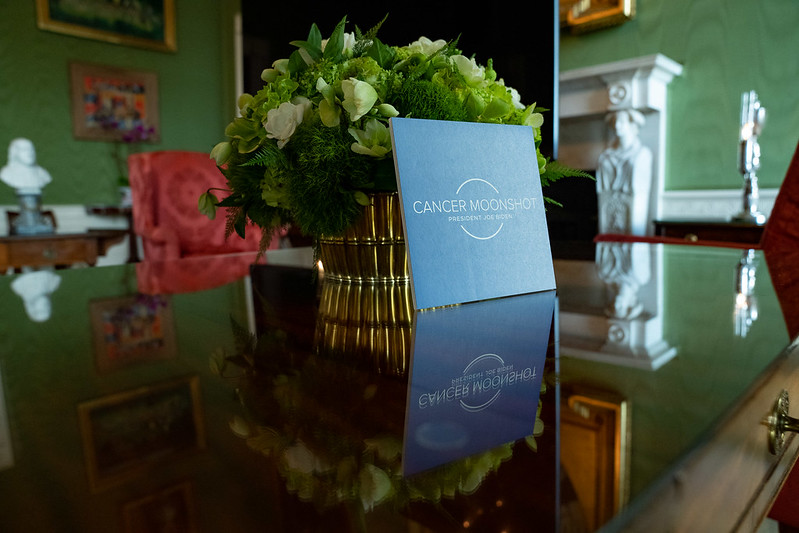
I am a cancer survivor. I was diagnosed with cancer at age 7 and went through treatment for almost four years. At 7 years old, I didn’t really know what was going on and how serious it was. When I finally went into remission, I realized all the support I had from the nurses and doctors, the community and people around me — and how strong the experience made me.
Unfortunately, my cancer story is not unique. The experience of cancer — of getting a cancer diagnosis, surviving cancer, losing someone to cancer — has touched virtually every family in America. That’s why President Biden re-ignited the Cancer Moonshot and set a new national goal: to cut the death rate from cancer by at least 50% over the next 25 years and improve the experience of people and their families living with and surviving cancer.
I’m proud to be part of the president’s efforts as part of his Cancer Cabinet, a group of leaders from across the federal government collaborating on priority actions to help end cancer as we know it. The department’s initiatives include efforts to protect workers by limiting their exposure to carcinogens or potential carcinogens, and ensuring access to critical benefits, when necessary. We know that access to leave is a critical benefit for workers to receive treatment or provide care. A cancer diagnosis can create financial stress and raise questions for patients and caregivers about how to balance their jobs and health.
This week, as we celebrate a Cancer Moonshot week of action, I’m pleased to share that the Department of Labor’s Wage and Hour Division created some new resources, in addition to existing resources, to help workers living with cancer, their caregivers, and cancer survivors to understand and make use of their rights under the Family and Medical Leave Act. These resources include:
-
A fact sheet on taking FMLA leave from work when you or your family member has a serious health condition. The fact sheet explains when a mental or physical condition, such as cancer, meets the FMLA’s criteria as a serious health condition.
-
An overview of workplace protections for individuals impacted by cancer. A new webpage helps workers with cancer, cancer survivors, and their family members navigate federal and state worker protections and employer-provided benefits to get time off work while dealing with cancer.
-
A guide for talking to your employer about taking time off for family and medical reasons. Our new guide provides practical guidance for workers to have conversations with their employers about taking time off work to care for themselves or their loved ones. It’s a great resource to help workers find the words to say during potentially difficult conversations.
-
Help for health care providers. This flier guides healthcare providers through FMLA rules concerning medical certifications. It’s a handy tool that medical professionals can use to make sure patients’ and family caregivers’ employment is protected as they deal with serious health conditions.
I’m proud to be a cancer survivor and to be part of an administration committed to ending cancer as we know it. Together, we can continue to make progress toward reducing the burden of cancer for everyone.
Marty Walsh is the U.S. Secretary of Labor. Follow him on Twitter and Instagram at @SecMartyWalsh.

 U.S. Department of Labor Blog
U.S. Department of Labor Blog